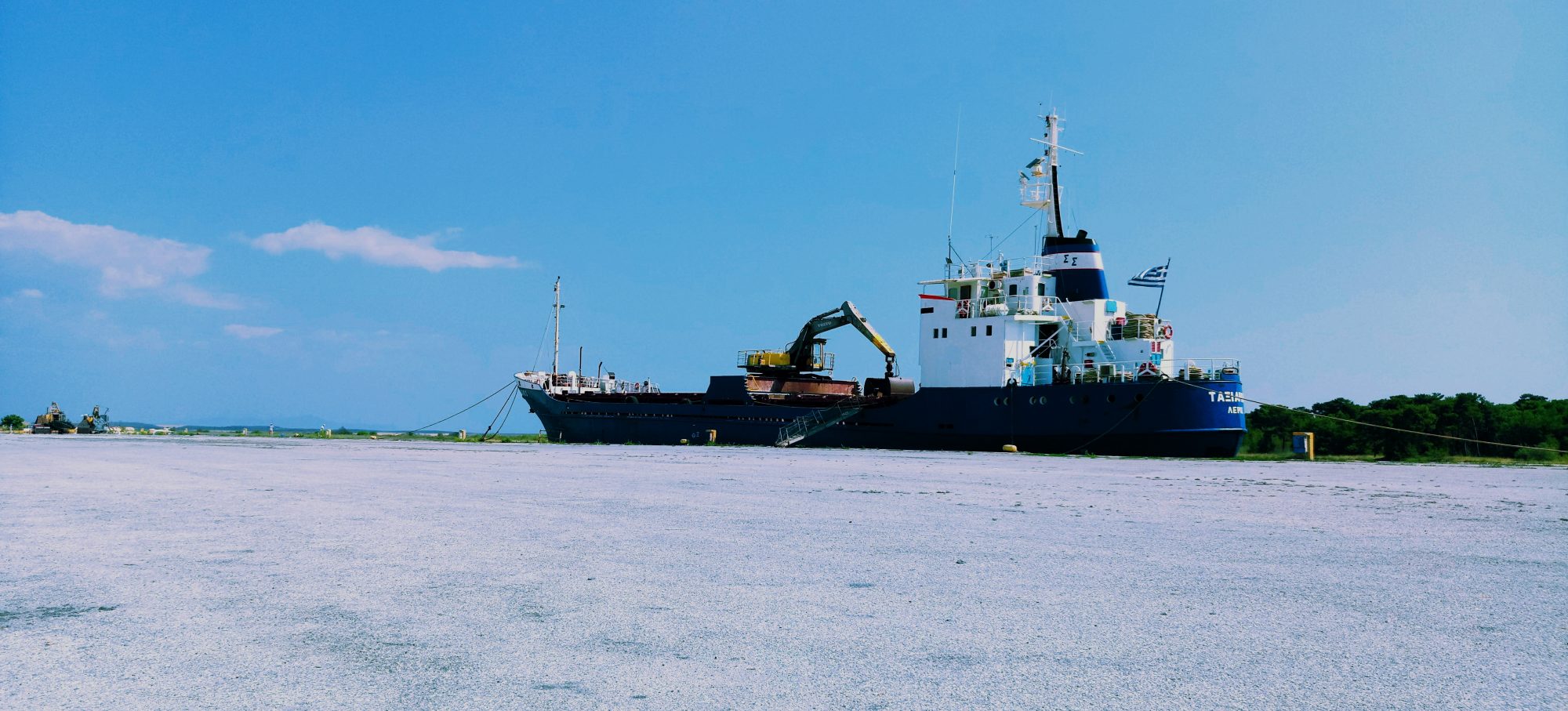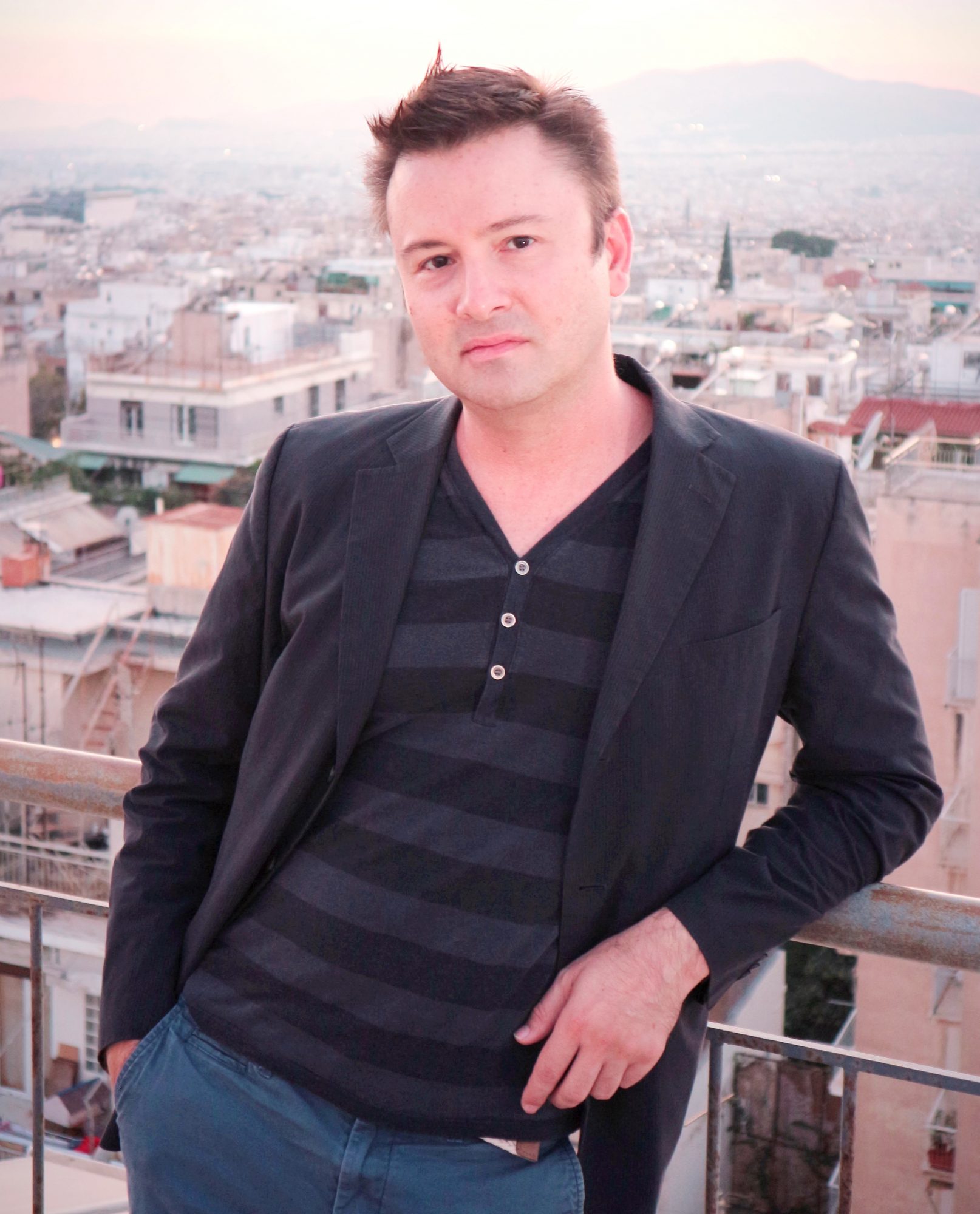A Place for the Unsignificant
My neighbor is confused about the order in which things should be explained. I nod my head at each next sentence as he elaborates on why the universe has brought us this global pandemic as a replacement for the old disaster, the financial crisis in Greece, as a way of crushing us, of making us suffer.
“Do I tell you what you should think or how you should feel?” he says. “No. So don’t tell me.”
I’ve known him since childhood, when he wanted to build a ship. He lives with his mother. He often feels uncomfortable, but after he was fired from his sixth job, he made peace with it. They snap at each other for unfinished housework and expired food. She is the stability in his life. Her house is the only thing that has stayed the same after ten years of economic hardship.
His world is a chess board in the process of being perfectly set up. First, he needs to orientate the board correctly and then place the pieces: the euro coins in his pocket, the recent mafia-style executions, his mother’s pension, the last rejection letter, the sagging folds on his young neck, the gurgle of the automatic hand sanitizer at the supermarket when he puts his palms out.
He is grateful to have someone onto whom he can direct his sadness—someone close to his age to hang out with after many months alone with his mother. We talk about friends from high school, illness, divorce, layoffs, wondering about the next disaster around us, but not as a disaster: instead, as a reality already known, already shaped.
We lounge around an abandoned bar shed, talking of the future, wishing for another way things might have been.
“It’s like the deck of a sloop,” he says, and for a moment, everything is acutely beautiful. The sparkle of the bay, the movement of the waves, the line where the sea meets the sky—they’re enough to make it seem like a deck.
My neighbor has two sides: one that dreams of the sloop, and one that fears the shipwreck. This is our life now. We can’t have one without the other.
Ένας τόπος για το ασήμαντο
Ο γείτονάς μου έχει μπερδέψει λίγο τη σειρά με την οποία προσπαθεί να ερμηνεύσει τα πράγματα. Εγώ κουνάω το κεφάλι σε κάθε καινούρια πρόταση όσο εκείνος αναλύει το γιατί το σύμπαν μάς έστειλε την πανδημία ως αντικατάστατο της προηγούμενης συμφοράς, της οικονομικής κρίσης στην Ελλάδα, προκειμένου να μας συνθλίψει, να μας κάνει να υποφέρουμε.
«Σου λέω εγώ τι πρέπει να σκέφτεσαι ή πώς πρέπει να νιώθεις;» διαμαρτύρεται. «Όχι. Γι’ αυτό να μην μου λες ούτε κι εσύ.»
Τον ξέρω από παιδί, από τότε που τ’ όνειρό του ήταν να σκαρώσει ένα καράβι. Ζει με τη μάνα του. Αυτό τον ζορίζει μερικές φορές, αλλά αφότoυ τον απέλυσαν κι από την έκτη κατά σειρά δουλειά, το πήρε απόφαση. Τσακώνονται για τις δουλειές του σπιτιού που μένουν στη μέση, για τα ληγμένα τρόφιμα. Αλλά η μάνα του φέρνει και μια σταθερότητα στη ζωή του. Το σπίτι της είναι το μόνο πράγμα που έμεινε άθικτο μετά από μια δεκαετία οικονομικής δυσπραγίας.
Ο κόσμος του είναι μια σκακιέρα την οποία προσπαθεί να στήσει όσο καλύτερα μπορεί. Πρώτα ψάχνει την κατάλληλη θέση κι ύστερα τοποθετεί πάνω της τα πιόνια: τα λιγοστά ευρώ που έχει στην τσέπη, τις πρόσφατες μαφιόζικες εκτελέσεις, τη σύνταξη της μάνας του, την τελευταία επιστολή απόρριψης, το ζαρωμένο, πλαδαρό δέρμα γύρω απ’ το νεανικό του λαιμό, τη γαργάρα του αυτόματου απολυμαντικού χεριών στο σούπερ μάρκετ, όταν τεντώνει τις παλάμες του.
Μετάφραση: Elena Pallantza
Ein Ort für das Unbedeutende
Mein Nachbar ist verwirrt über die Reihenfolge, in der die Dinge erklärt werden sollten. Ich nicke bei jedem weiteren Satz mit dem Kopf, als er ausführlich erklärt, warum das Universum uns diese globale Pandemie gebracht hat, als Ersatz für die alte Katastrophe, die Finanzkrise in Griechenland, um uns zu zermalmen, um uns leiden zu lassen.
„Schreibe ich dir vor, was du denken oder wie du fühlen sollst?“, sagt er. „Nein. Dann sag es nicht mir.“
Ich kenne ihn seit seiner Kindheit, als er ein Schiff bauen wollte. Er lebt mit seiner Mutter zusammen. Er fühlt sich oft unwohl, aber nachdem er bei seinem sechsten Job gefeuert wurde, hat er seinen Frieden damit geschlossen. Sie schnauzen sich gegenseitig an wegen nicht erledigter Hausarbeit und abgelaufenem Essen. Sie ist die Stabilität in seinem Leben. Ihr Haus ist das Einzige, was nach zehn Jahren wirtschaftlicher Not unverändert geblieben ist.
Seine Welt ist ein Schachbrett im Prozess des perfekten Aufbaus. Zuerst muss er das Brett richtig ausrichten und dann die Figuren platzieren: die Euro-Münzen in seiner Tasche, die jüngsten mafiaähnlichen Hinrichtungen, die Rente seiner Mutter, der letzte Ablehnungsbrief, die schlaffen Falten an seinem jungen Hals, das Gegurgel des automatischen Handdesinfektionsgeräts im Supermarkt, wenn er seine Handflächen ausstreckt.
Er ist dankbar, jemanden zu haben, auf den er seine Traurigkeit lenken kann – jemanden in seinem Alter, mit dem er etwas unternehmen kann, nachdem er viele Monate allein mit seiner Mutter war. Wir reden über Freunde aus der Highschool, über Krankheit, Scheidung, Entlassungen, fragen uns nach der nächsten Katastrophe um uns herum, aber nicht als Katastrophe: stattdessen als eine bereits bekannte, bereits geformte Realität.
Wir lungern um einen verlassenen Barschuppen herum, reden über die Zukunft, wünschen uns eine andere Art, wie die Dinge hätten sein können.
„Es ist wie das Deck einer Schaluppe“, sagt er, und für einen Moment ist alles ausgesprochen schön. Das Glitzern der Bucht, die Bewegung der Wellen, die Linie, wo das Meer auf den Himmel trifft – all das genügt, um es wie ein Deck erscheinen zu lassen.
Mein Nachbar hat zwei Seiten: eine, die von der Schaluppe träumt, und eine, die den Schiffbruch fürchtet. Das ist jetzt unser Leben. Wir können das Eine nicht ohne das Andere haben.
Übersetzung: Armin Hosseini
Share












